
“The robots are coming!”: New autonomous delivery service sets its sights on Sheffield
Six-wheeled robots may be delivering takeaways to your home in time for the new year.
Robot company, Starship, is teaming up with Uber Eats to bring autonomous delivery to Sheffield.
The robots are equipped with the ability to mount curbs and only in difficulty will be helped by human operators.

They have an 18-hour battery and can deliver hot and cold food in an average of 20 minutes.
Launched by Skype co-founders, Ahti Heinla and Janus Friis, in 2014, the company now operates over 2,700 robots in 270 locations around the world.
They aim to have 12,000 robots by 2027.
Already operating in several cities across the UK in collaboration with the Co-op, the Uber Eats expansion will be flagshipped in Sheffield and Leeds.
“Together, we’re building the infrastructure that will define the next generation of urban logistics,” said Heinla.
In October, Starship’s robots were introduced to Downing Street to promote the ways in which technology can transform society for good.
They have emphasised their commitment to accessibility, citing the robots as an effective tool in providing services to people with disabilities.
Milton Keynes MP, Emily Darlington, has heaped praise on the company for its effectiveness in her constituency, but the question remains as to whether this will translate to success in Sheffield, given the cities’ differences.
While all robots have an in-built sensor, their size (697mm x 569mm) may present issues for disabled pedestrians.

Worries also stem from the threat to jobs in Sheffield.
Amy, a local resident, wondered: “How many jobs is that taking away?”
In contrast, another resident, Hannah, said: “If it’s convenient, the consumerist side of my brain would think ‘amazing' but where does it end?”
There remains a cautious intrigue about the innovation coming to Sheffield but, whatever the opinions, this can be seen as a clear step towards technology gaining ever further influence over everyday life.

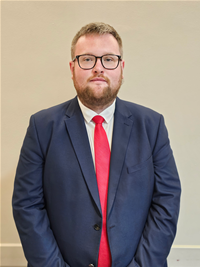
Council aims to eradicate fatal road accidents in Barnsley by 2050
A plan to halve the number of road deaths by 2030 and completely wipe them out by 2050 in Barnsley was introduced and called into question this week.
While the number of overall road casualties has decreased by 24% during the past ten years, the number of people killed or seriously injured has increased by 4% during the past 12 months.
However, the council's aims may be too much of an ask, according to some residents and councillors, as current trends would need to rapidly improve during the next five years for these targets to be reached.
Cabinet spokesperson for Environment and Highways, Councillor James Higginbottom (pictured), described these aims as "ambitious targets" and Safer Roads Strategy members said that while optimistic, the targets were still realistic and feasible.
But during the Overview and Scrutiny Committee meeting earlier this week, other councillors were more sceptical of the 2030 aim.
They claimed a limited budget and a trend much slower than is required makes the task seemingly impossible.
Donna Roden, a retired traffic police sergeant who lives in West Barnsley, said: "I'm not convinced they are in any way achievable."
Cllr Higginbottom said safety was the top priority and two new speed indicator devices have been installed and rotated along 94 sites in 2024.
Along with this over 50 20mph School Safety Zone advisory signs have been installed at 24 school sites since 2022, with seven more to be added in the next financial year.
He said: "Every life lost or seriously affected by a road collision is a tragedy for families and the wider community."
As well as infrastructure, the council has developed campaigns to educate drivers, such as the 'Don't Drive Daft' and the 'Safer Roads Barnsley' campaigns.
Cllr Higginbottom reported that male drivers aged between 17-24 are the leading offending demographic in the area and he is looking to implement "education and engagement campaigns, particularly for high-risk groups such as young drivers."
Feature Image from Barnsley Council website

Remembering lives lost: Sheffield’s monthly vigil against gender-based violence
On the first Thursday of every month in Sheffield, people gather on the steps of the Town Hall to remember the lives lost to male violence.
The monthly vigils, held at 5.30pm, are a part of a growing movement to keep the urgency of gender-based violence in the public view.
Gender-based violence is a global issue, highlighted each year by the UN during the 16 Days Against Gender-Based Violence campaign, which runs from the 25th of November to the 16th of December.
In 2023, a woman was intentionally killed by a partner or family member every ten minutes and, in response, UK police declared gender-based violence a national emergency in 2024.
For many in Sheffield, these vigils are a way of refusing silence and insisting that the crisis remains visible.
Charlotte Mead, a member of the VAWG Forum and the Equality Party, explained that the gatherings began locally in 2021, after the murder of Sabina Nessa.
She said: “I think it’s really important we all gather publicly like this.
“After Sabina was murdered and the vigil was held, a few people decided that we should continue them, not just for high-profile murder cases.”
Charlotte said that consistency is essential with these vigils: “We know that these murders happen two to three times a week on average. There’s a family going through what Sabina’s family went through that many times in a week.”
During each vigil, the names of women who have been killed by male violence are read aloud in remembrance.
“There’s never been a month where we haven’t had to read any names out," Charlotte said. "I look forward to the day there are no names.”
The next VAWG vigil will take place on the 8th of January, 2026, on the steps of the Town Hall and will also be available to access online.
The VAWG Forum welcomes all women, including trans women and those with non-binary gender identities.
For more information, email: dact@sheffield.gov.uk.

Budget lifeline for Mountain Rescue on International Volunteers Day
Mountain Rescue Teams across the country are set to receive a major financial boost, helping them save lives as they deal with a massive rise in incidents.
A Vehicle Excise Duty exemption is set to save each team thousands of pounds a year, with the Chancellor to roll the plan out from 2027.
Edale Mountain Rescue estimate the measure will save them over £2,000 a year.
Today marks International Volunteers Day, with organisations across the country celebrating the vital work they do for free.
Mountain Rescue Teams are voluntary organisations set up to recover those who get into trouble in remote areas of nature, and rely entirely on fundraising to support their work.
Each team costs around £100,000 a year to run, but when combined provide the country with an estimated £30m service other emergency services are not equipped to deliver.
Tim Radford, a volunteer with Ogwen Valley Mountain Rescue, estimates that his team save the local government around one million pounds per year.
"If they had to do the same job that we do at minimum wage, it would cost them about that much", he said.
Mr Radford believes people need to be better informed about the potential dangers of the countryside, adding: "going for a walk in the mountains - it isn't just walking through the park."
He said: "If something goes wrong, they're right on the edge."
The Peak District National Park attracts over twelve million visits each year, with numbers increasing alongside accident rates.
This means Sheffield is uniquely reliant on Mountain Rescue teams, who each deal with hundreds of incidents in the Peak District every year.
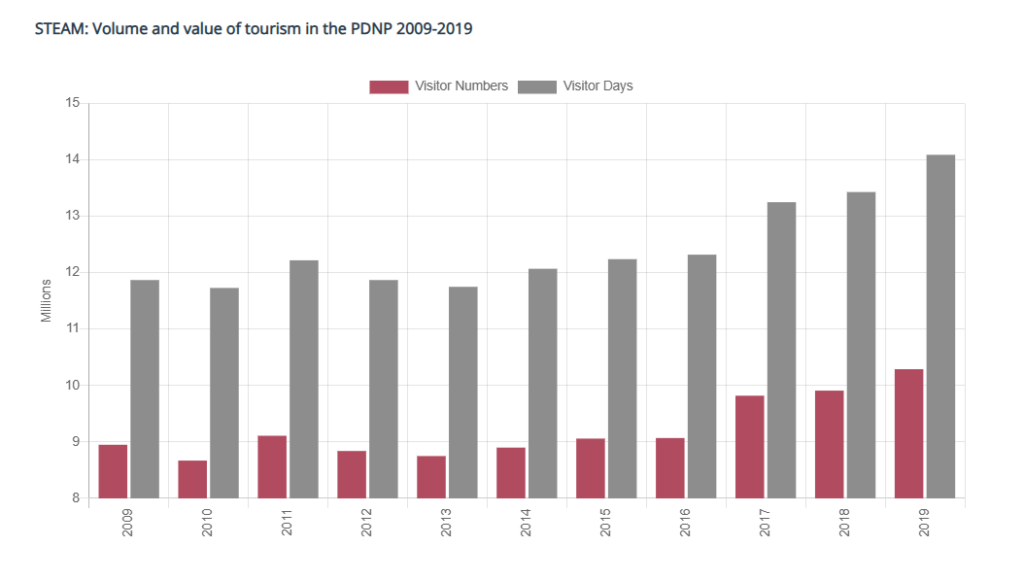
Mike Park, CEO of Mountain Rescue England and Wales, called the exemption savings "significant," but noted that demand for their services is rapidly increasing.
"We are getting busier and busier," he said.
"There's an encouragement to get out there and exercise," he said, adding: "we've seen a lot more people that are unprepared for that environment.
"We’re seeing a lot more problems with just a slight rise in the number of people."
Mr Park believes that there should be more support for the unpaid volunteers, who last year dealt with a record 3,462 call outs nationally.
“There is a lot of assumption that we are actually a full-time paid emergency service just waiting for that call to go out and rescue someone," he said. “I have opposite numbers to me, and they’re on a six figure sum to do their role."
Mr Park is pushing for the government to introduce a central insurance scheme to protect volunteers from the dangers they face whilst out in the mountains.

“I don’t turn anybody away”: Mrs Christmas’ determination to bring joy to the lonely in Sheffield
For nearly two decades, Gloria Stewart, known locally as “Mrs Christmas,” has made sure no one spends the festive season alone by providing a warm meal and great company for hundreds of people.
The 'Home Alone at Christmas' event at the Niagara in Sheffield is a chance for people to enjoy regular seasonal activities and entertainment at a time of year that can feel lonely for many.
Mrs Stewart began the tradition in 2007, after an encounter with an elderly lady in a hospital, who was facing Christmas alone following the passing of her husband.
Mrs Stewart, 76, from Orchard Close, Ecclesfield, said: “It stayed with me, she told me how she was planning to go to bed with biscuits and coffee all alone.”
Despite having no previous experience in organising events, Mrs Stewart arranged for 87 people to enjoy a Christmas dinner and, since then, the annual tradition has grown steadily.
Now, 19 years on, the festive event, which has welcomed as many as 500 people, sees an average of 200 to 300 people attending each year.
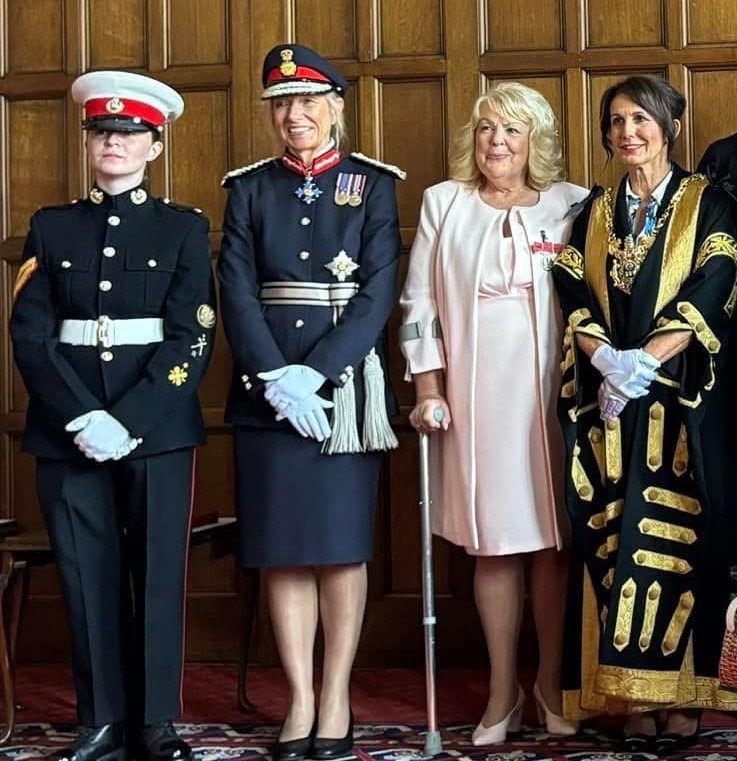
“I don’t like turning people away, that’s why it got to that number," said Mrs Stewart. "People just want a meal or a chat or even a little dance, it means so much to them.”
On top of organising the Christmas get-togethers, Mrs Stewart has visited people in care homes, many of them nearing the end of their life.
She said: “As soon as you walk into the room, they just want to give you their life-story.
“They just want to reminisce, we always give them a hug and a box of chocolates, it's the least we can do."
During the Covid-19 pandemic, Mrs Stewart took part in the Archer Project in Sheffield, donating more than 600 items to help those experiencing homelessness.
She also safely distributed almost 400 gift hampers for elderly and vulnerable residents with quiet door-stop deliveries at the height of the pandemic.
Mrs Stewart said: “I don’t have any adverts, I’d rather pay money towards helping people.
"Why should anyone have to pay for what’s normal for so many others?”
In 2024, Mrs Stewart was awarded with the British Empire Medal for her efforts in combatting loneliness over the Christmas period.
This year, she is appealing for donations after years of funding the event out of her own pocket.
Mrs Stewart explained that funding has become increasingly difficult to secure, having to rely on the good nature of others for help.
She said: “If I can just give dinners, entertain, and make a few friends, all is well.
“We welcome volunteers, if anyone is able to send any gifts to the Niagara, where we host the Christmas dinner, that would be wonderful.”
Anybody who wishes to donate can do so following Mrs Stewart's GoFundMe link.

“Compassion and community”: Sheffield literary group hosts charity read-through
A Sheffield literary appreciation society brought the festive mood into the heart of the city centre with their annual fundraising readthrough of Charles Dickens' timeless classic 'A Christmas Carol' for a seasonal homeless charity.
The Dickens Fellowship Sheffield Branch, a close-knit literary group dedicated to studying the life and works of Victorian author Charles Dickens, hosted their annual charity 'A Christmas Carol' readthrough on Thursday 4 December at Upper Chapel, Norfolk Street.
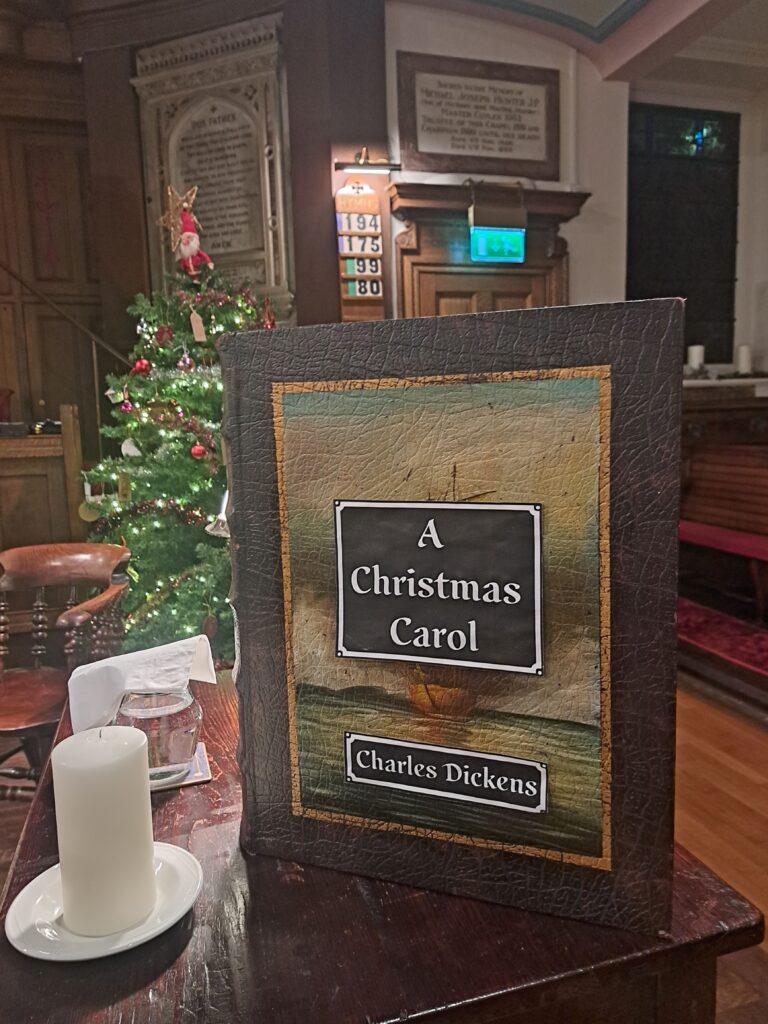
A Christmas Carol by Charles Dickens
Funds are being donated to Homeless and Rootless at Christmas (HARC), a Sheffield based, volunteer-led charity. The organisation provides shelter, hot meals and essential wellbeing services for vulnerable people across the festive season, assisting an average of 150 guests each day of their opening period.
Julie Edworthy, Branch Secretary of the Dickens Fellowship Sheffield Branch, said: "HARC is a very worthy and appropriate charity. Dickens supported good causes and it is part of our constitution to help charitable organisations he would have been interested in."
Upper Chapel Manager Patrick Smith stepped into the role of storyteller for the fourth year running, embodying all of the Dickensian characters in a two-hour readthrough.

Patrick Smith reading A Christmas Carol mid-performance
Patrick said: The fundraiser is about doing some good when the city centre is feeling the effects of homelessness. A Christmas Carol is a significant story as we head into the New Year as we review how we treat others and see the errors of the past.
"In a world focused on billionaires, the story remains really important."
You can watch an extract from Patrick's reading below:
Teresa Flack, Chair of Trustees of HARC, said: "We are truly grateful that they have chosen to support Homeless and Rootless at Christmas (HARC) through their readthrough of A Christmas Carol at Upper Chapel to raise funds for our charity.
"This event captures the spirit of Dickens’ work perfectly, reminding us of the importance of compassion and community at Christmas.
"Contributions from events like this make a real difference in ensuring we can continue to offer dignity and care to those most in need."
You can donate to HARC now by following the link below Donate to Homeless and Rootless at Christmas | Wonderful.org.
The Dickens Fellowship Sheffield Branch meet monthly at Channing Hall, Surrey St. Membership costs £12 a year.

Christmas workshop raises £400 in support of education for refugees
A Christmas wreath-making workshop has brought the South Yorkshire community together to raise funds for the Hope English School.
The Sheffield-based charity runs classes that teach both English and digital skills to refugees and people seeking asylum.
Monday's workshop was led by two florists who assisted the attendees in making Christmas wreaths for their homes, with a variety of materials and decorations at hand.
Although raffle tickets were also available to purchase at the event, the tickets to attend the event alone raised £400 for the charity.
As well as spreading the festive spirit, the event helped to recognise the hardship facing refugees and the importance of supporting those in need over the Christmas period.
Lucy Morley, member of the leadership team, said in her speech: "This season is about sharing with one another, maybe with people we don't necessarily know."
Highlighting the aims of the charity, Ms Morley was quick to emphasise that "everyone deserves to have the best education" and that "what has happened in your past should not define your future."
The charity has now been running for nine years, having been set up at a time when government restrictions, such as funding cuts and gender barriers, were hindering the opportunities available to refugees.
The organisation now encompasses a team of highly experienced teachers who deliver group and one-to-one teaching sessions.
The team's class coordinator, Jane Middleton, spoke out about how important the charity is in highlighting the plight of refugees.
Addressing the current rhetoric around refugees, Ms Middleton talked about the need to recognise refugees as "people with families," who "need our sympathy and compassion."
Alongside this workshop, the charity has ran numerous fundraisers and recruited a large amount of support from the community.
Ms Whelpton, an attendee at the event, said: "We will look out for future events to help fundraising [as] it is important to help refugees."

Meet the women who have created a “beautiful, diverse, and inclusive community”
Over 60 strangers gathered in Hagglers Corner yesterday for a Christmas-themed celebration of diversity and inclusivity at Living in Sheffield's third 'International Women's Xmas Party.'
Founder of the event, Livia Barreira, 41, said: "I want it to be a safe and joyful space for women from all across the world, coming together with our British sisters as well, so it is a moment for celebration where everyone can feel like they can be themselves."
Livia, who is a freelancer from Brazil, arrived in Sheffield nearly 10 years ago without many friends and limited English proficiency. She started the event because she felt lonely during the festive period and knew that others in the international community did, too.
Today, she has created what she describes as a "beautiful, diverse, and inclusive community."
Elis, who attended the event, said: "I really like the event because it feels like a safe and welcoming space, with other like-minded people who have been through the same experience as me, as an immigrant.
“And being a women and non-binary-only event, it only adds to this feeling of safety. I love that we have something like this in Sheffield."
The tickets included an international buffet ranging from Brazilian to Nigerian food, along with a raffle and human bingo.
Livia welcomes all women and non-binary people to attend, saying: "It doesn't matter where you come from, your background, the colour of your skin, if you are LGBTQ+ or your age.
"Everyone is welcome, we are united with our values of inclusivity.”

In the past, Livia has run other events such as a ‘Women in Business Coffee Morning’ and ‘International Women Brunch’.
Speaking to the group, she said: "This is not just a party, this event is much more.
“My vision is to create a safe, inclusive, and joyful space where everyone can be themselves, especially in the current political climate, events like this become more important than ever."
Livia added: “This is the most important legacy I want to leave to those who come after me."

Sheffield Wednesday seek positivity after second point deduction
The Owls will travel to Blackburn Rovers, hoping to snap their four-game losing streak in the Championship.
Sheffield Wednesday’s disastrous season continued after falling to Preston North End in front of the home crowd in Hillsborough last Saturday.
Charlie McNeill’s first two Championship goals put them up twice, but a second-half defensive breakdown, alongside a penalty miss from McNeill himself, cost the Owls the game.
The dreaded week did not stop for the organisation when the EFL handed them an additional six-point deduction for multiple breaches of regulations relating to payment obligations.
The latest punishment left the deeply troubled Wednesday sinking at the bottom of the table at -10 points, 23 points behind the closest team, Norwich.
When asked about the deduction in the pre-match press conference, head coach Henrik Pedersen said: “It has changed nothing. We still want to come as high as possible in the league table.
“I am very convinced that we can keep up the hunger, keep up the discipline, keep up the belief. I have it and [the players] have it.”
Indeed, there were plenty of encouraging takeaways from Henrik Pedersen’s side against Preston to take into the Blackburn game.
Sheffield Wednesday scored at least twice for the first time since late September and recorded the most distance covered this year.
Team news
Owl fans will surely rely on their star man, Barry Bannan, who, despite turning 36 recently, has been one of the most prolific chance creators in the Championship.
Pedersen praised Bannan’s leadership and adaptability to “play higher up the pitch”, which has helped the system to become more effective.
Regarding injuries, Max Lowe has also returned to training after sitting out due to a hamstring problem. His situation will be monitored further until the weekend.
Nathaniel Chalobah completed passing drills in yesterday’s training session but will not be available. George Brown is expected to return to training in around two weeks.
New signing Nathan Redmond is also expected to be in the squad after making his debut last week.
Optimism against Blackburn
Henrik Pedersen described Blackburn Rovers as a physical, strong and aggressive opponent who are capable of playing both possession and direct football.
The Rovers have gone winless in their past three Championship games with one loss and two draws. They recently came off a last-minute heartbreak against Ipswich Town after a last-minute goal snatched away their victory.
Blackburn Rovers also have one of the poorest home records in the league, having won only one out of nine matches at Ewood Park.
Pedersen is optimistic but cautious before the matchup: “We always believe we can win, it doesn’t matter where we are going. We have a trust and a belief that we can do something in Blackburn.
“But we know that we all have to perform our very best to take something.”
Sheffield Wednesday defeated Blackburn Rovers in three of their five previous matchups, but failed to do so last season with a draw and a loss.
Feature image - Courtesy of Sheffield Wednesday
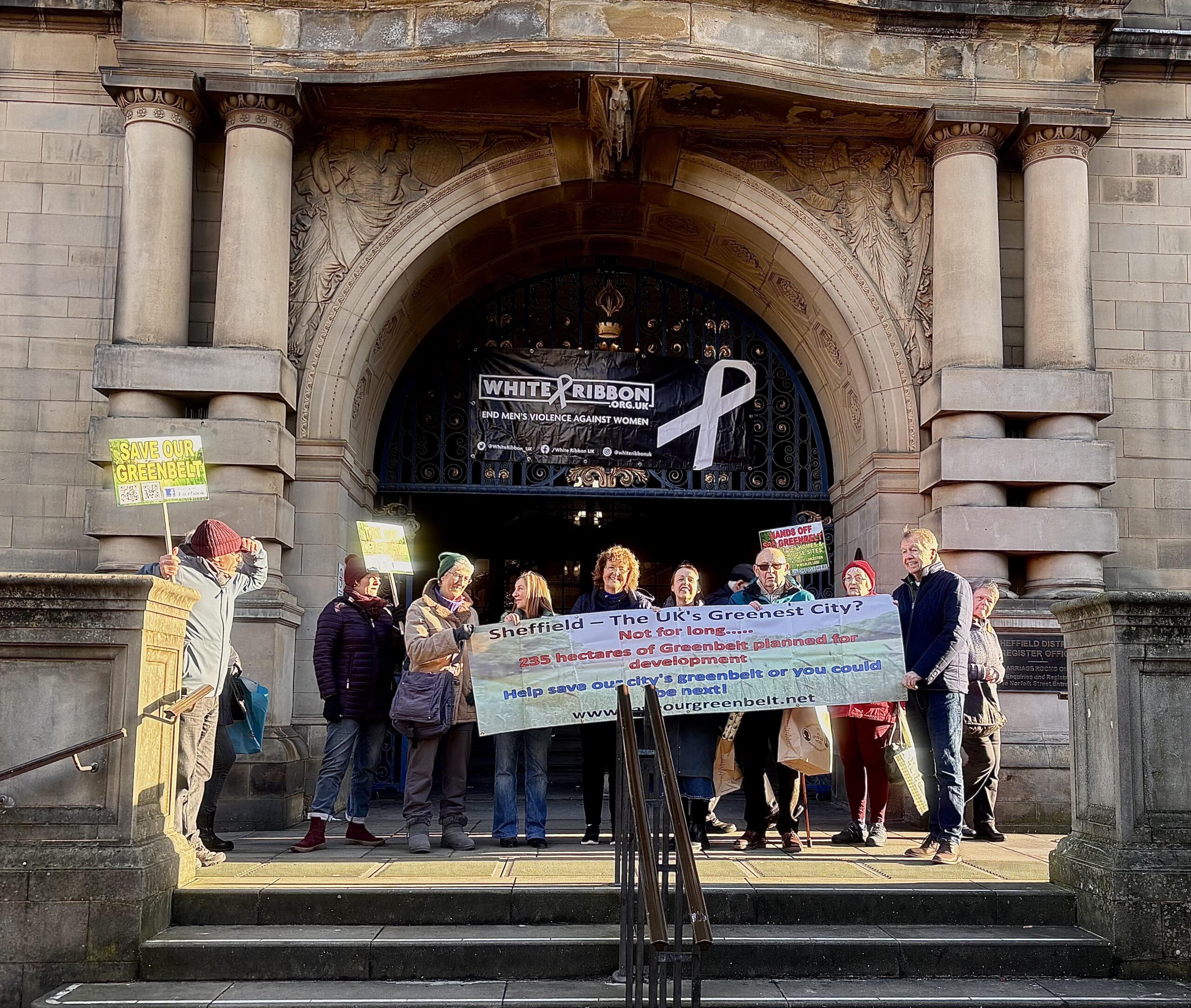
Protesters oppose “unfair” S35 greenbelt development outside Sheffield Town Hall
Campaigners who are lobbying against the proposed developments on the S35 greenbelt site protested outside Sheffield Town Hall this week.
The Chapeltown, Grenoside and Ecclesfield Save Our Greenbelt Action Group chanted and held banners opposing Sheffield City Council's greenbelt development plans, which include building '1,600 homes'.
Chair of the campaign group, Gill Travis, 63, told Sheffield Wire the main points of contention are that around 50% of the council’s greenbelt development plans are in S35.
She also explained that more than 70 “major” documents were released without adequate time to respond.
Speaking at the protest on Wednesday, Ms Travis said: "We are asking the council to follow their own principles.
"There’s something called triple-lock, which is all about listening to the people. We’re asking them to look at that, and also to look at the Lowcock Report.”
The Lowcock Report, also known as the Street Trees Inquiry, looked at failures in Sheffield City Council's conduct and made recommendations for improvement, including a focus on communication between the council and residents.
The council’s triple lock combines three policy drivers - people, prosperity, and planet - which it says the city and its people “cannot thrive without”. Ms Travis claims the council are failing to do this in their refusal to listen to S35’s objections.
Listen to Chapeltown, Grenoside and Ecclesfield Save Our Greenbelt Action Group chant outside Sheffield Town Hall below
The S35 group liaises closely with S13's Sapphire McCarthy Campaign, which has been protesting development on two South East Sheffield greenbelt sites since May.
“Once that heritage is gone, once that history is gone, once the animals are gone, once that land is gone — particularly because some of it is agricultural — we won’t ever get it back,” said Ms Travis.
The council stated in May this year that developing the S35 greenbelt site has been deemed necessary under "exceptional circumstances" due to a lack of alternative options. Campaigners have disputed this, saying there are plenty of brownfield sites available.
Once that heritage is gone, once that history is gone, once the animals are gone, once that land is gone — particularly because some of it is agricultural — we won’t ever get it back
Ms Travis commended Clive Betts MP’s “brilliant” efforts to stand up for the S13 community and said that S35 residents “don’t really feel they’ve been very supported” by their own MP, Dr Marie Tidball, who allegedly expressed sympathy with the community but did not follow this up with further support.
“One of the biggest concerns for us [S35] and S13 is that it’s very unfair," said Ms Travis. "It feels like they’ve particularly gone with working class demographics on the basis that we might be a bigger pushover than the likes of Fulwood, Dore or Totley.”
This is a sentiment that has since been confirmed to Sheffield Wire by Mr Betts himself.
Michelle Sherriff, 64, who has lived in the S35 area all of her life, was at the protest on Wednesday.
She echoed Ms Travis' concerns that north Sheffield’s greenbelt is being picked on because of its historically working-class demographic.
It feels like they’ve particularly gone with working class demographics on the basis that we might be a bigger pushover than the likes of Fulwood, Dore or Totley
Ms Sherriff also condemned Sheffield City Council’s Green Party coalition for failing to stand up for S35’s greenbelt, calling their conduct “diabolical”.
“How could you possibly trust the Green Party [now]?” she said.

Sheffield Eagles hopeful after fixtures released for revamped Championship season
Sheffield Eagles will hope to enjoy greater success this season than last year's 11th place finish.
Optimism is strong for the South Yorkshire team, who have a strong rugby league history and are seen to have recruited smartly for this season.
They have also received several contract boosts over the off-season, including club captain Joel Farrell signing a three-year contract.
The competition has been expanded to 21 teams from 13, after the decision to merge the Championship and League One to strengthen the structure outside the Super League.
According to the fixture release, The Eagles will play 12 of those teams home and away, with ten of those opponents decided off last year's league position, and the other two based on geographical location, featuring two derby clashes against Doncaster.
They play their rivals once in 'Rivals Round' over Easter weekend (3-5 April) at the Steel City Stadium, before visiting them in the penultimate round of the league season in August.
Other highlights include games against former Super League heavyweights Widnes Vikings and the London Broncos.
They start the season away at Whitehaven on 18 January.
A quirk of the fixture list sees the Eagles play Whitehaven twice to start the season, hosting them a week later in the Betfred Challenge Cup.
There will be bye rounds with no fixtures for the Eagles at the beginning of February and June.
After the league season, the top ten teams will enter the play-offs which take place over four weeks in September, with the Grand Final taking place on 4 October.
Fans will hope that the League side can make it to the latter stage of the play-off phases, especially the prized final four.
Additionally, the 1895 Cup (the knockout competition for teams below the Super League) provides a very good chance of silverware.
They are the inaugural winners, and are looking to become the first team to win the competition twice.
The revamped Betfred Championship should cause a lot of intrigue this season, with plenty of new opponents and a real chance of success for the Eagles across an extremely competitive season.
Feature image - Courtesy of Sheffield Eagles
